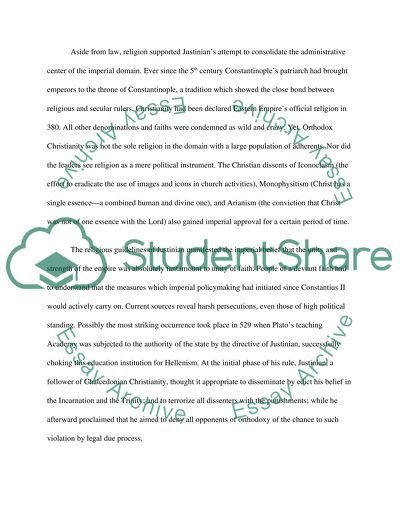Cite this document
(“Justinian and Theodora Research Paper Example | Topics and Well Written Essays - 2500 words”, n.d.)
Retrieved de https://studentshare.org/history/1392644-justinian-and-theodora
Retrieved de https://studentshare.org/history/1392644-justinian-and-theodora
(Justinian and Theodora Research Paper Example | Topics and Well Written Essays - 2500 Words)
https://studentshare.org/history/1392644-justinian-and-theodora.
https://studentshare.org/history/1392644-justinian-and-theodora.
“Justinian and Theodora Research Paper Example | Topics and Well Written Essays - 2500 Words”, n.d. https://studentshare.org/history/1392644-justinian-and-theodora.


